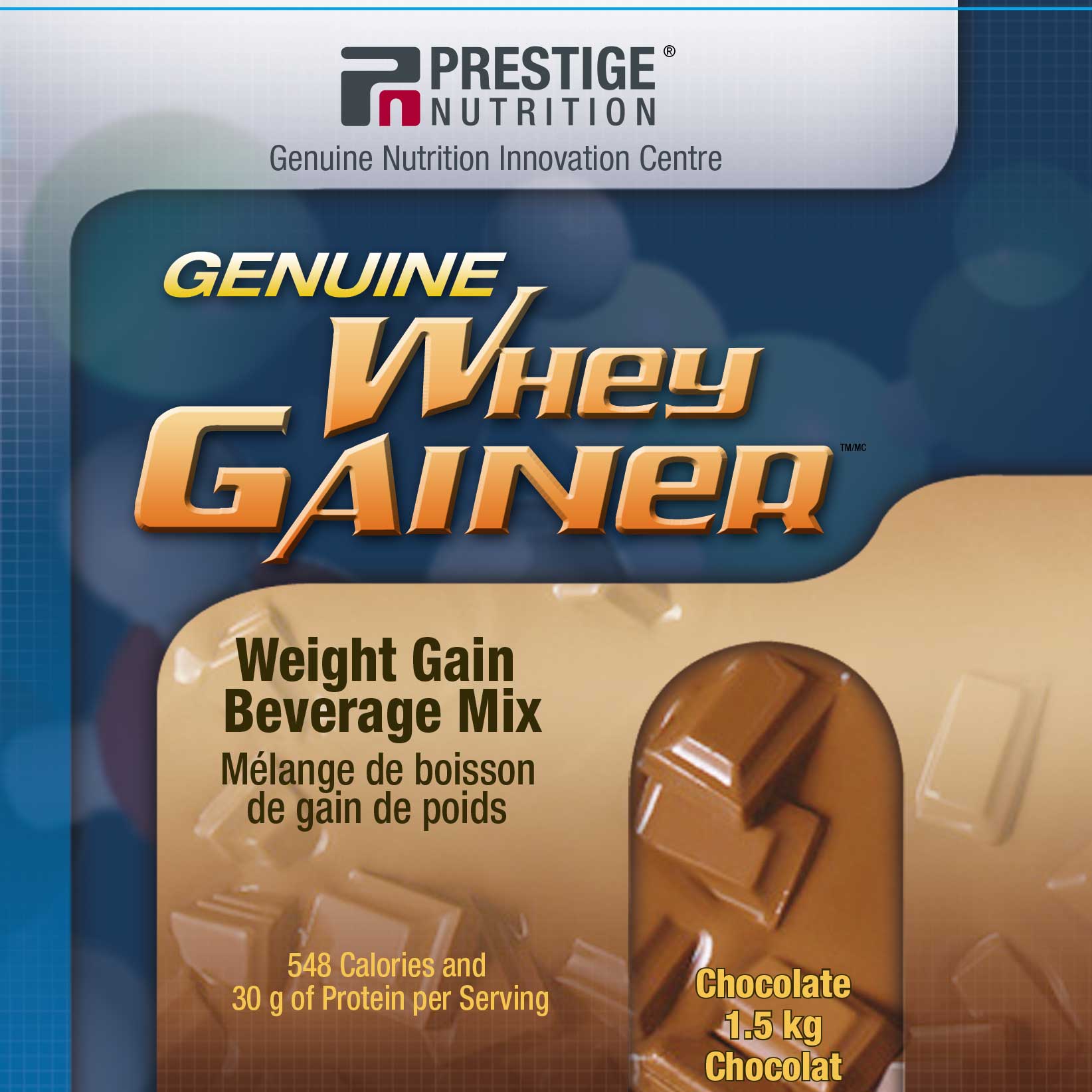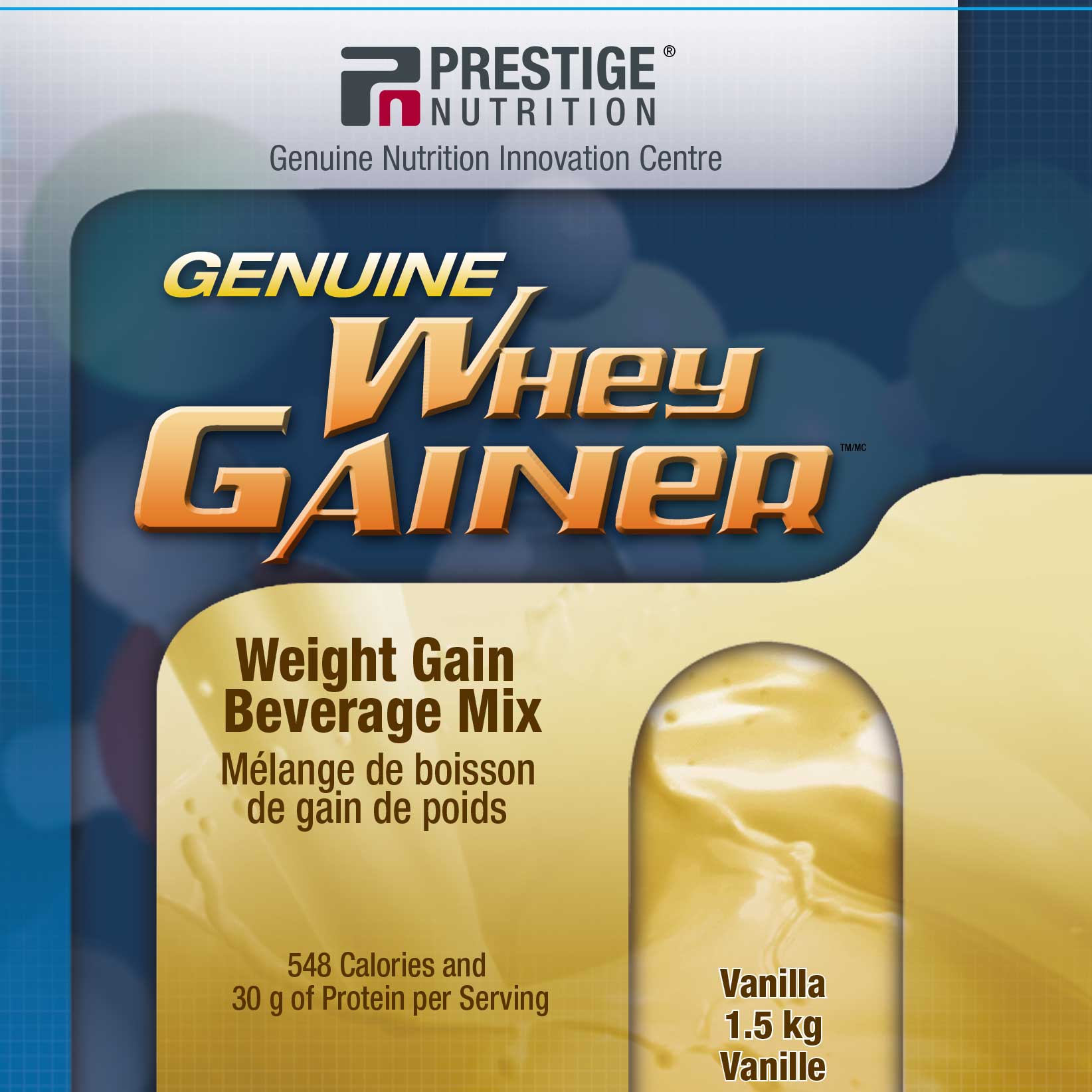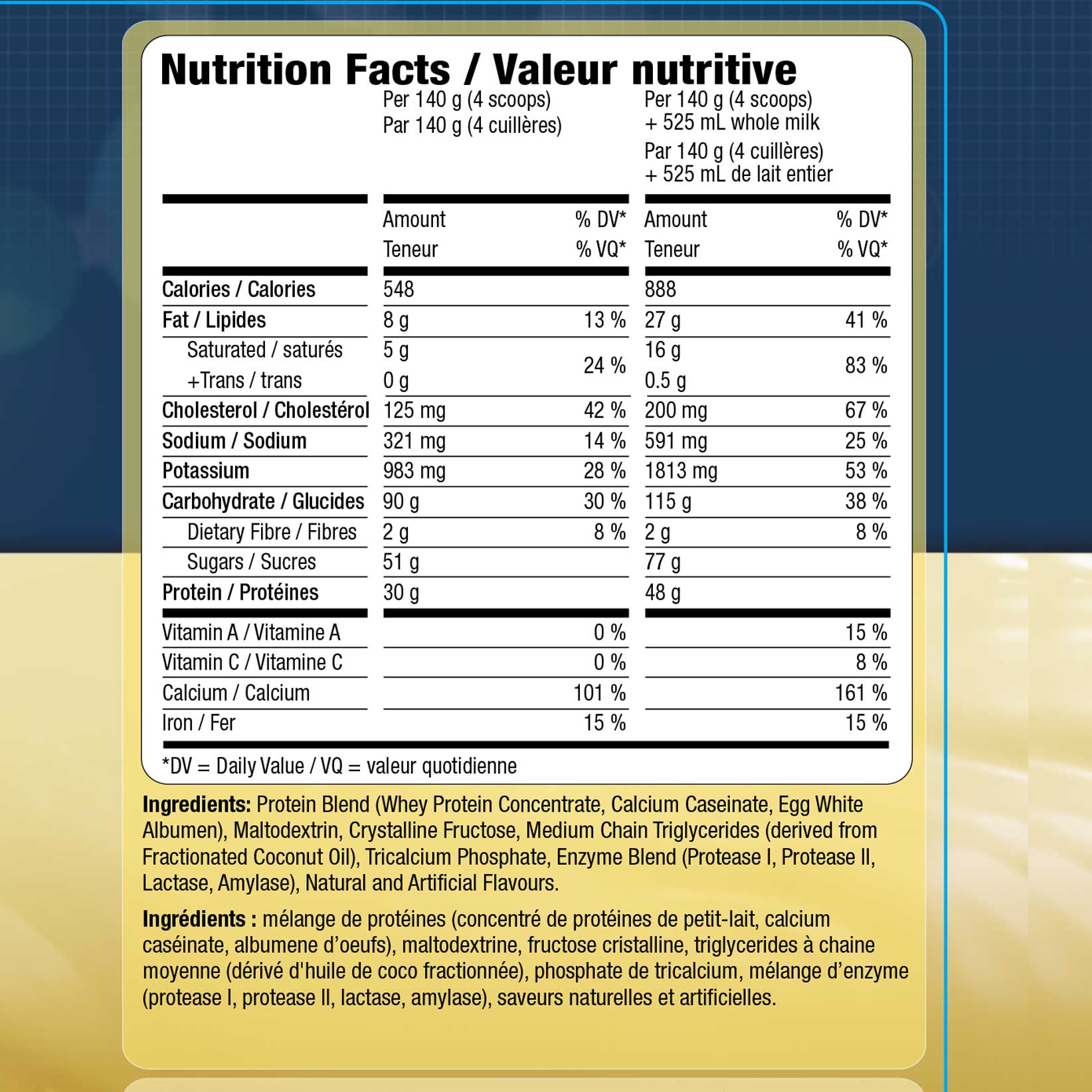Genuine Whey Gainer™
General Description
Source of protein and non-complex carbohydrates; Helps enhance muscle protein recovery after intense exercise .
Product name:Genuine Whey Gainer™
Dosage form:Drink mix powder
Flavours: Vanilla, Chocolate, Strawberry, Banana





Overview :
Genuine Whey Gainer™ is our special protein-carbohydrate blend with high quality medium chain triglycerides, manufactured under extremely high quality standards that make it unique and trustworthy. Genuine Whey Gainer™ is certified by two organizations: HFL (UK) for doping free laboratory test and Quality Alliance International (Canada) for nutritional profile and complete microbial and heavy metal analysis.
Clinical trials indicated that after resistance exercise, a mixture of whey protein, amino acids, and carbohydrates stimulated muscle protein synthesis to a greater extent than carbohydrates alone. The addition of protein to an amino acid–carbohydrate mixture may also extend the anabolic effect. Because amino acids stimulate muscle protein synthesis, amino acid or protein supplements are essential to promote muscle anabolism after exercise.
Genuine Whey Gainer™ is what professional bodybuilders and other athletes trust when it comes to body building competitions.
VIEW SPECIFICATIONSSpecifications
WHEY
Whey proteins are easily digested, completely bio-available and have excellent metabolic efficiency. Whey proteins contain all the essential amino acids in optimal proportions.
There are numerous commercial sports nutrition products available in North America today that use whey proteins as the main protein source. The categories that incorporate whey proteins as the basic part of their nutritional profile are high protein products such as meal replacements, weight-gain products, and pre–workout supplements.
The American College of Sports Medicine, the American Dietetic Association, and the Dietitians of Canada, in their recent joint position about nutrition and athletic performance, concluded that protein requirements are higher in very active individuals and suggested that resistance athletes need 1.6-1.7 g protein/kg body weight while endurance athletes need approximately 1.2-1.4 g protein/kg, values that are about 150-200 percent of the current United States Recommended Dietary Allowances (RDA). Whey protein is rich in these amino acids. Studies indicated that consumption of a drink containing about 0.1 gram of essential amino acids per kilogram of body weight (7grams for a 70-kilogram athlete) during the first few hours of recovery from heavy resistance exercise will produce a transient, net positive increase in muscle protein balance.
Amino acid supplementation in combination with physical activity stimulates the transport of amino acids into the muscles. There is a direct correlation between inward amino acid transport and muscle protein synthesis
Whey contains high levels of Arginine and Lysine both believed to stimulate growth hormone release, and increase muscle mass while decreasing body fat. Glutamine is another important component of Whey proteins; it promotes muscle glycogen recovery and prevents immune function suppression from overtraining.
Whey proteins are considered as a good source of sulfur-containing amino acids such as Cysteine and Methionine which are responsible for maintaining antioxidant levels in the body. These amino acids are thought to stabilize DNA during cell division.
In comparison to most other protein sources, Whey proteins are unique in their ability to optimize several aspects of the immune function. Whey proteins seem to modulate the immune function by boosting glutathione production. Glutathione is the first line of the body’s antioxidant defense system that regulates many components of immune function. Muscle glutamine is another essential fuel for immune function that can be provided by Whey protein supplementation.
Whey proteins are also rich in Arginine and Lysine. Arginine and Lysine are among the amino acids that seem to stimulate growth hormone, an anabolic hormone or stimulator for muscle growth.
Whey protein encompasses a variety of fractions including the major bovine proteins alphalactalbumin and beta-lactoglobulin, and minor fractions such as serum proteins, immunoglobulins, lactoferrin, and tissue growth factors. Recent clinical trials have also shown that dietary intakes of dairy products may protect against excess adiposity.
Whey proteins have received GRAS (Generally Recognized as Safe ) from the FDA.
Casein
Casein is a valuable phosphoprotein found in milk and is broken down to casein peptides after digestion. Many of these peptides are thought to have a variety of biological activities. Some casein peptides affect immune function and some seem to have blood pressure lowering effects. Casein stimulates various intestinal secretions. It is an excellent source of protein for people involved in physically demanding activities.
MCT
Medium–Chain Triglycerides (MCTs) are semi-synthetic lipids made from hydrolyzed coconut oil or palm kernel oils.
MCTs are efficiently absorbed. Unlike long chain triglycerides, MCTs don’t require the intestinal lymphatic system or bile salts for absorption. There has been some interest in using MCTs for injured and physically stressed people since it causes mild ketosis and may decrease skeletal muscle catabolism.
MCT oil has shown to reduce blood triglyceride levels. Evidence suggests that MCTs may increase metabolic rate and energy expenditures. MCTs may induce satiety and thus decrease the consumption of calories. Increased metabolic rate and decreased caloric intake may result in a slight decrease of body fat.
